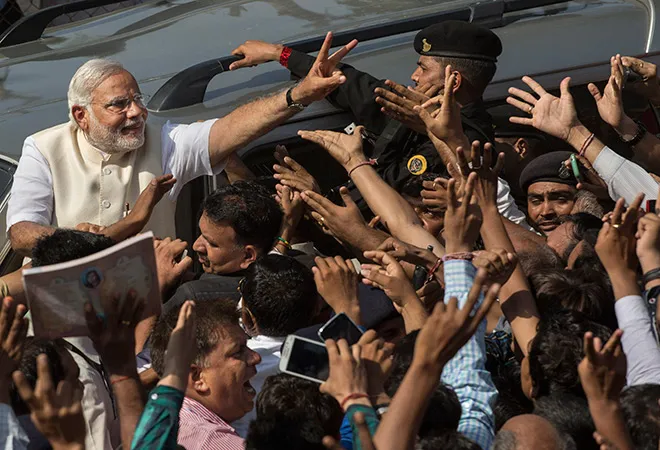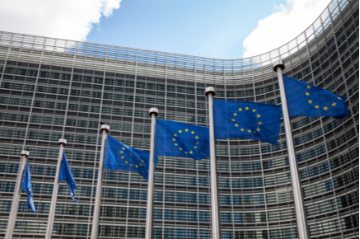
Pulwama tragedy of February 14 has set in an electoral dynamic that is sure to affect the outcome of the general elections that are due to be held in April-May this year.
Subsequent developments after the February 14 Pulwama tragedy leading to the release of Wing Commander Abhinandan Varthman on March 1 by Pakistan through Wagah-Attari border have undoubtedly given an electoral edge to Prime Minister Narendra Modi and the BJP for the coming general elections.
Continuing heightened tensions between India and Pakistan with no prospects for de-escalation before the general elections provided Modi and his party an excellent opportunity to partially hold to the political ground that was rapidly slipping away.
Incessant violations of the ceasefire with heavy shelling across the Line of Control (LoC) in Jammu and Kashmir further keep the nation on alert with people getting concerned about national security.
Already existing enmity between India and Pakistan began to acquire threatening dimensions after the terrorist attack on a CRPF convoy in Pulwama. Killing of over 40 para-military security personnel in the terrorist attack raised public anger with demand for action against the perpetrators of the inhuman act skyrocketing.
On February 26, India launched an air attack at three terrorist camps including one at Balakot deep inside Pakistani territory calling its action as “non-military” and “pre-emptive”. On February 27, the next day, Pakistan jet fighters attacked Indian military installations in which one of its fighter plane was hit by an Indian fighter plane. In the air battle, one of Indian pilots Abhinandan was captured on its soil by Pakistan.
Escalation of tensions moving towards a possible armed conflict between two South Asian nuclear weapons powers set in motion international efforts to deescalate the explosive situation moving towards a possible war. The US, Saudi Arabia, the UAE, France and to a lesser extend China made determined efforts to impress upon the political leadership of both India and Pakistan to take steps to bring down temperatures.
Notwithstanding international efforts, there is no chance whatsoever for de-escalation or return to normalcy because it does not politically suit Modi and his party. We must not either ignore or overlook a fact that Modi is through and through a political being.
The BJP-led NDA government’s five-year record of accomplishment has not been very commendable and it has failed to clear the public perception examination. Killing of over 40 security forces personnel at Pulwama has come Modi’s way as a God’s gift since the BJP’s political fortunes were nosediving. Given his talent to turn a tragedy into a political opportunity. Modi did not even pause a minute to go into grief as a normal citizen would have done. Instead, he began to exploit popular sentiments for electoral objectives.
Modi’s strategy becomes clear if we take a close look at the schedule of the Prime Minister Narendra Modi after news of killing of CRPF personnel broke out. Modi on that day at that particular hour was at the Jim Corbett national park. He had reportedly gone there for a shoot of a documentary for Discovery TV channel. He did not stop the filming instead continued with the shoot.
At the same time, not only Modi’s close confidante and colleague BJP chief Amit Shah continued to address election rally in Assam but also even other party leaders remained politically active.
The Prime Minister made his foreign trip to South Korea where he was felicitated with the Peace Prize. Modi continued with his official work along with his overtime-political activities hitting the opposition in general and the Congress in particular.
In 15 days since Pulwama, neither the Prime Minister nor any of his governmental or party colleagues ceased or postponed election related activities for a minute even while country’s jet fighters were attacking terrorist camps in Pakistan or our pilot Abhinandan was in Pakistan custody.
While the country’s main opposition party-the Congress- had called off its Working Committee meeting at Ahmedabad, the Prime Minister went on to address BJP booth workers through video-conferencing. The BJP publicity managers touted the event as one of the world’s biggest event.
This only shows how determined the Prime Minister and the BJP is to win the election. Modi is least concerned or even bothered about being political nice or correct as possibly expected from a prime minister. Modi has been relentlessly attacking the Congress even at official functions as he did while inaugurating the War memorial in the national capital.
Threat to national security from Pakistan can only be countered by the BJP under Modi’s leadership is going to the main electoral narrative.
Divided opposition cannot meet the challenge to national unity and integrity is going to be continuous appeal to the electorate from BJP and RSS leaders in weeks to come until the general elections. The BJP-RSS and its massive publicity machine is going to project opposition and their supporters as anti-nationals and rest supporting Modi and his party as true nationalists.
On March 1 even while the nation was waiting for the release of pilot Abhinandan, Modi said in his election rally in Tamil Nadu that some political parties “guided by their Modi hatred” have started “hating India”.
In this scenario, the opposition has an uphill task. If non-BJP political opponents are keen to take on the massive BJP challenge under Modi then unity is the key. Index of the opposition unity has to be very high which means one-to –one contest in majority of the Lok Sabha constituencies.
Apart from concluding winnable alliances at the state of regional levels, the opposition would have to win the battle of popular perception. By agreeing to a doable common minimum programme (CMP), the opposition can impress public minds.
While it is going to be difficult for the BJP to sustain threat to nation narrative for next two and half months, the opposition has much to gain politically if it acts sensibly by reducing larger than life egos of their leaders and forge unity.
The views expressed above belong to the author(s). ORF research and analyses now available on Telegram! Click here to access our curated content — blogs, longforms and interviews.




 PREV
PREV


